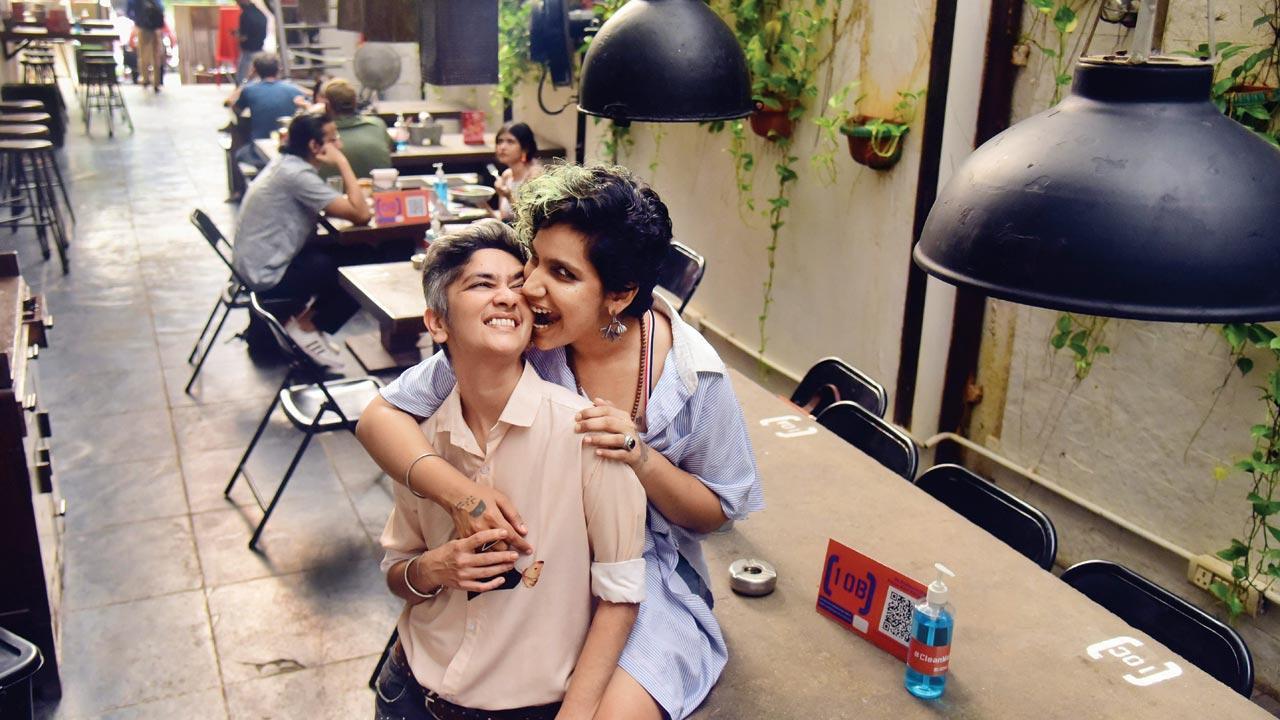Home / Sunday-mid-day / / Article /
Sorry, we’re in love
Updated On: 17 October, 2021 10:22 AM IST | Mumbai | Anju Maskeri
A new Canadian research paper says men in same-sex relationships reported engaging in PDAs less frequently than women. Back home, those comfortable being themselves even in public, say it’s both an assertion of identity and form of protest

Winnie Chopra and Gurleen Arora, seen at Khar Social, say PDA is second nature to them because they are “touchy feely” people in general. Pic/Shadab Khan
While travelling to Jammu in a long-distance train, Ankur Mondal, an advertising professional from Delhi, and his boyfriend Gaurav Gupta, a software engineer, were careful to not draw any attention from fellow passengers. “People get all weird when they see two men holding hands, especially in a public place,” says Mondal. Closed spaces such as cafes and theatres feel relatively safer to the couple that has been dating for three years. They indulge in PDA (public display of affection), provided they don’t feel threatened. “While homosexuality is no longer a crime in the country, the attitude towards queer intimacy is yet to change,” adds Gupta. “Without quite realising it, we have become self-vigilant so as not to leave those around us uncomfortable,” Mondal admits.
 Ankur Mondal and Gaurav Gupta from Delhi usually have their guard up when together in public spaces. `There’s a fear that you may get beaten up`
Ankur Mondal and Gaurav Gupta from Delhi usually have their guard up when together in public spaces. `There’s a fear that you may get beaten up`



